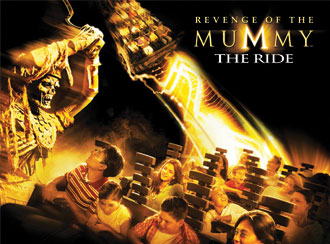|
Saturday, September 18,
2010
EFF-PFF Amicus Brief in Schwarzenegger v. EMA Supreme Court Videogame Violence Case
 By Berin Szoka & Adam Thierer By Berin Szoka & Adam Thierer
Yesterday, the Progress & Freedom Foundation (PFF) and Electronic Frontier Foundation (EFF) filed a joint amicus brief with the U.S. Supreme Court urging the Court to protect the free speech rights of videogame creators and users and asking the justices to uphold a ruling throwing out unconstitutional restrictions on violent videogames. At issue is a California law that bans the sale or rental of "violent" videogames to anyone under the age of 18, among other regulations. While the law was passed in 2005, it has never taken effect, as courts have repeatedly ruled it unconstitutional. California appealed its loss at the Ninth Circuit Court of Appeals to the Supreme Court. The case is Schwarzenegger vs. EMA.
This case has profound ramifications for the future of not just videogames, but all media, and the Internet as well. Although we've had 15 years of fairly solid Supreme Court case law on new media issues, a loss in the Schwarzenegger case could reverse that tide. In the amicus brief, we explain how the current videogame content rating system empowers parents to make their own decisions without unconstitutionally restricting this new and evolving form of free speech. Our brief is focused on three major arguments:
- Parental Control Tools, Household Media Control Methods, Self-Regulation and Enforcement of Existing Laws Constitute Less Restrictive Means of Limiting Access to Objectionable Content than Government Regulation of Constitutionally Protected Speech
- Videogame Content is Constitutionally Protected Speech Deserving Strict Scrutiny
- The State Has Not Established a Compelling Government Interest in Restricting the Sale of Videogames to Minors
The filing can be found online here and it is embedded down below. As always, the Media Coalition has done an outstanding job summarizing the case and listing all the major briefs filed with the Court in this matter, so check out their Schwarzenegger v. EMA page for everything you need to know about this case. GamePolitics.com also offers excellent ongoing coverage of the case. Continue reading EFF-PFF Amicus Brief in Schwarzenegger v. EMA Supreme Court Videogame Violence Case . . .
posted by Adam Thierer @ 12:44 PM |
Free Speech, Video Games & Virtual Worlds
Link to this Entry | Printer-Friendly | Email a Comment |Post a Comment (44)
Monday, July 12,
2010
If We Ban Violent Video Games, Why Not Violent Theme Park Attractions?
 I'm hoping to get some input from readers as I look to finish up an amicus brief for the forthcoming Schwarzenegger v. EMA video game case. (Respondent briefs are due in mid-Sept and the State of California just filed its brief with the Court today). You will recall that the Supreme Court accepted the case for review in April, meaning it will be the first major case regarding video game speech rights heard by our nation's highest court. It raises questions about the First Amendment status of games and what rights minors have to buy or play "violent" video games. One section I hope to include in the brief I'm working on deals with how other forms of media content are increasingly intertwined with video game content. In it, I explain how video games are less of a discreet category of visual entertainment than they once were. I'd welcome ideas for other examples to use relative to the ones you see below. I'm hoping to get some input from readers as I look to finish up an amicus brief for the forthcoming Schwarzenegger v. EMA video game case. (Respondent briefs are due in mid-Sept and the State of California just filed its brief with the Court today). You will recall that the Supreme Court accepted the case for review in April, meaning it will be the first major case regarding video game speech rights heard by our nation's highest court. It raises questions about the First Amendment status of games and what rights minors have to buy or play "violent" video games. One section I hope to include in the brief I'm working on deals with how other forms of media content are increasingly intertwined with video game content. In it, I explain how video games are less of a discreet category of visual entertainment than they once were. I'd welcome ideas for other examples to use relative to the ones you see below.
I begin by discussing games that were inspired by major motion pictures, such as both the recent Star Wars and Lord of the Rings movie trilogies, for example. I also note that many games were inspired by notable books, such as the LotR games being inspired by Tolkien, and The Godfather video games that were inspired by Mario Puzo's novel of the same name. I also make mention of The Terminator movies starring California Governor Arnold Schwarzenegger, which inspired a wide variety of video games, many of which featured his likeness.
More importantly, I highlight how many video games are now inspiring movies, music, books, and comics, including: Prince of Persia, Max Payne, Resident Evil, Tomb Raider, Doom, Final Fantasy, Halo, and Gears of War. The characters and storylines in the books, comics, and movies based on these games often closely track the video games that inspired them. Increasingly, therefore, games are developed along parallel tracks with these other forms of content. Thus, to regulate games under the standard California proposes in this case raises the question of whether those other types of media should be regulated in a similar fashion. Should every iteration of the original game title be regulated under the standard California has suggested if those books, comics, or movies contain violent themes? Continue reading If We Ban Violent Video Games, Why Not Violent Theme Park Attractions? . . .
posted by Adam Thierer @ 7:31 PM |
Free Speech, Supreme Court, Video Games & Virtual Worlds
Link to this Entry | Printer-Friendly | Email a Comment |Post a Comment (4)
Thursday, June 17,
2010
Latest Video Game "Essential Facts" Report
 The Entertainment Software Association, which represents the video game industry, has just released its latest " Essential Facts about the Computer and Video Game Industry" publication. It's a handy annual resource that I always look forward to reading. There are many interesting facts and figures found in the report, but here a few worth calling out from the data they have aggregated:
- 93% of the time parents are present at the time games are purchased or rented
- 64% of parents believe games are a positive part of their children's lives
- 86% of the time children receive their parents' permission before purchasing or renting a game
- 48% of parents play computer and video games with their children at least weekly
- 97% of parents report always or sometimes monitoring the games their children play
- 76% of parents believe that the parental controls available in all new video game consoles are useful
The survey also bolsters the findings of many other polls and reports which have found that parents employ a variety of what I have labeled "household media rules" to monitor or control their children's media consumption: Continue reading Latest Video Game "Essential Facts" Report . . .
posted by Adam Thierer @ 4:37 PM |
Free Speech, Online Safety & Parental Controls, Video Games & Virtual Worlds
Link to this Entry | Printer-Friendly | Email a Comment |Post a Comment (0)
Wednesday, May 26,
2010
Video Games, Media Violence & the Cathartic Effect Hypothesis
 David Leonhardt of The New York Times penned an interesting essays a few days ago entitled, "Do Video Games Equal Less Crime?" reflecting upon the same FBI crime data I wrote about earlier this week, which showed rapid drops in violent crime last year (on top of years of steady declines). Crimes of all sorts plummeted last year despite the serious economic recession we find ourselves in. Downturns in the economy are typically followed by upticks in crime. Not so this time. Which leads Leonhardt to wonder if perhaps exposure to violent media (especially violent video games) could have played a positive role in tempering criminal activity in some fashion: David Leonhardt of The New York Times penned an interesting essays a few days ago entitled, "Do Video Games Equal Less Crime?" reflecting upon the same FBI crime data I wrote about earlier this week, which showed rapid drops in violent crime last year (on top of years of steady declines). Crimes of all sorts plummeted last year despite the serious economic recession we find ourselves in. Downturns in the economy are typically followed by upticks in crime. Not so this time. Which leads Leonhardt to wonder if perhaps exposure to violent media (especially violent video games) could have played a positive role in tempering criminal activity in some fashion:
Video games can not only provide hours of entertainment. They can also give people -- especially young men, who play more than their fair share of video games and commit more than their fair share of crimes -- an outlet for frustration that doesn't involve actual violence. Video games obviously have many unfortunate side effects. They can promote obsessive, antisocial behavior and can make violent situations seem ordinary. But might video games also have an upside? I'm willing to consider the idea.
Go Back to the Greeks
What Leonhardt is suggesting here goes by the name "cathartic effect hypothesis" and debates have raged over it for centuries. Seriously, the fight goes all the way back to the great Greek philosophers Plato and Aristotle. And, as with everything else, Aristotle had it right! Well, at least in my opinion he did, but I am a rabid Aristotealian. While Plato thought the media of his day (poetry, plays & music) had a deleterious impact on culture and humanity, Aristotle took a very different view. Indeed, most historians believe it was Aristotle who first used the term katharsis when discussing the importance of Greek tragedies, which often contained violent overtones and action. He suggested that these tragedies helped the audience, "through pity and fear effecting the proper purgation of these emotions." (See Part IV of Aristotle's Poetics,) Aristotle spoke highly of tragedies that used provocative or titillating storytelling to its fullest effect: Continue reading Video Games, Media Violence & the Cathartic Effect Hypothesis . . .
posted by Adam Thierer @ 11:05 PM |
Free Speech, Video Games & Virtual Worlds
Link to this Entry | Printer-Friendly | Email a Comment |Post a Comment (9)
Monday, May 24,
2010
More on Monkey See-Monkey Do Theories about Media Violence & Real-World Crime
 I've had plenty to say here before about the "monkey see, monkey do" theories bandied about by some researchers and regulatory proponents who believe there is a correlation between exposure to depictions of violence in media (in video games, movies, TV, etc) and real-world acts of aggression or violent crime. I have made three arguments in response to such claims: I've had plenty to say here before about the "monkey see, monkey do" theories bandied about by some researchers and regulatory proponents who believe there is a correlation between exposure to depictions of violence in media (in video games, movies, TV, etc) and real-world acts of aggression or violent crime. I have made three arguments in response to such claims:
(1) Lab studies by psychology professors and students are not representative of real-world behavior/results. Indeed, lab experiments are little more than artificial constructions of reality and of only limited value in gauging the impact of violently-themed media on actual human behavior.
(2) Real-world data trends likely offer us a better indication of the impact of media on human behavior over the long-haul.
(3) Correlation does not necessarily equal causation. Whether we are talking about those artificial lab experiments or the real-world data sets, we must always keep this first principle of statistical analysis in mind. That is particularly the case when it comes to human behavior, which is complex and ever-changing.
What got me thinking about all this again was the release of the FBI's latest "Preliminary Annual Uniform Crime Report of 2009." The results are absolutely stunning. Here's a brief summary from New York Times:
Despite turmoil in the economy and high unemployment, crime rates fell significantly across the United States in 2009, according to a report released by the Federal Bureau of Investigation on Monday. Compared with 2008, violent crimes declined by 5.5 percent last year, and property crimes decreased 4.9 percent, according to the F.B.I.'s preliminary annual crime report. There was an overall decline in reported crimes for the third straight year; the last increase was in 2006.
Here are the percentage declines by overall crime category for the past 4 years, and more tables and charts depicting the declines for specific juvenile crimes can be found down below: Continue reading More on Monkey See-Monkey Do Theories about Media Violence & Real-World Crime . . .
posted by Adam Thierer @ 11:07 PM |
Free Speech, Video Games & Virtual Worlds
Link to this Entry | Printer-Friendly | Email a Comment |Post a Comment (1)
Tuesday, May 11,
2010
Will the Supreme Court Protect Kitten-Crushing Videos & Virtual Kid Porn but Not Video Games?
The Supreme Court recently announced that it will review a California law regulating the sale of violently-themed video games to minors. The case under review is Schwarzenegger v. Entertainment Merchants Association. In it, the Ninth Circuit Court of Appeals struck down a California law which prohibited the sale or rental of "violent video games" to minors. I'm inclined to agree with Julie Hilden when she notes that "it seems very unlikely that the Supreme Court took this case in order to proclaim, as the Ninth Circuit panel did, that minors do indeed have First Amendment rights -- rights that extend far enough to reach 'violent' video games." I hope that we're both wrong and that the Court took the case to instead affirm the free speech rights of game creators and users (and yes, even minors), but the justices could have just left the Ninth Circuit ruling be and that would have been settled.
Anyway, let's think this through here. What if the Supremes took the Schwarzenegger case to overturn the Ninth Circuit and to uphold the right of state governments to regulate the sale of "violent" video game content, however that's defined. Let's consider such a potential holding in light of two other free speech cases handed down over the past few years. Continue reading Will the Supreme Court Protect Kitten-Crushing Videos & Virtual Kid Porn but Not Video Games? . . .
posted by Adam Thierer @ 1:00 AM |
Free Speech, Supreme Court, Video Games & Virtual Worlds
Link to this Entry | Printer-Friendly | Email a Comment |Post a Comment (0)
Monday, April 26,
2010
comment on Supreme Court taking Calif video game case
The Supreme Court announced today that it will review a California law regulating the sale of violently-themed video games to minors. The case is Schwarzenegger v. Entertainment Merchants and I have written about it here before. This will be the first major First Amendment case regarding video game speech rights heard by our nation's highest court. This afternoon, I issued the following press statement about the case and its importance:
"I hope the Supreme Court is taking this case to affirm the free speech rights of game creators and users, and not to overturn ten years of solid, sensible lower court decisions granting video games the same First Amendment protections as books, film, music and other forms of entertainment. Government regulation of game content is unnecessary because parents have been empowered with sophisticated video game parental controls and a highly descriptive ratings system that is widely recognized and easy to use. Lawmakers should focus their efforts on making sure parents are better aware of existing tools and ratings instead of trying to censor game content in such a plainly unconstitutional fashion. Let's hope the Supreme Court affirms that educational approach and Ninth Circuit's decision at the same time."
Several reporters have already asked me if its a bad sign that the Court took the case at all and wondered if this meant that there are 5 votes for overturning the lower court decision. It's impossible to read the tea leaves on things like this, but I would generally agree that it's not a good sign. But I just don't understand how the Supreme Court could uphold a law like this in light of all their recent Internet jurisprudence (CDA, COPA, etc) which held against the government when various "harm to minors" statutes were tested and found to be unconstitutional. If the Supreme Court goes the opposite direction here, it will mean that our " First Amendment jurisprudential Twilight Zone" will become even more confusing and contorted. Let's hope that's not the case. posted by Adam Thierer @ 7:56 PM |
Video Games & Virtual Worlds
Link to this Entry | Printer-Friendly | Email a Comment |Post a Comment (0)
Thursday, January 14,
2010
Robotic Prostitution, Parental Controls, Caprica & Sex in the Uncanny Valley
 If this robotic girlfriend--unveiled last weekend at the AVN Adult Entertainment Expo and costing $7-9k--actually goes mainstream, I'll bet it's only a matter of time before we see some state lawmaker somewhere propose to ban the toys. The FCC well, no doubt, follow suit, by demanding the incorporation of parental control tools into the devices so Junior doesn't have his way with Ms. Roxxxy (or her soon-to-be-released male counterpart, Rocky) while Mom and Dad are out at NASCAR the opera. If this robotic girlfriend--unveiled last weekend at the AVN Adult Entertainment Expo and costing $7-9k--actually goes mainstream, I'll bet it's only a matter of time before we see some state lawmaker somewhere propose to ban the toys. The FCC well, no doubt, follow suit, by demanding the incorporation of parental control tools into the devices so Junior doesn't have his way with Ms. Roxxxy (or her soon-to-be-released male counterpart, Rocky) while Mom and Dad are out at NASCAR the opera.
Laugh if you will, but if Moore's Law holds true, such robots will become smarter, cheaper, and probably sexier as microchips continue to plummet in price and meaningful artificial intelligence becomes marketplace reality. Move over, Roomba, Roxxxy has arrived--and she ain't no Rosie the Robot Maid from The Jetsons! Telegraph reports that there's a whole book about this:
In a 2007 book, "Love and Sex with Robots," British chess player and artificial intelligence expert David Levy argues that robots will become significant sexual partners for humans, answering needs that other people are unable or unwilling to satisfy.
But the most interesting part of the telegraph article is creator Douglas Hines's motivation:
Inspiration for the sex robot sprang from the September 11, 2001 attacks, he said, where a friend died and he vowed to store his personality forever.
This sounds an awful lot like the plot of Caprica, the new SyFi television series, a prequel set 58 years before the beginning of Battlestar Galactica, the cult phenomenon that even seduced hardened TV-refusenik like me. Continue reading Robotic Prostitution, Parental Controls, Caprica & Sex in the Uncanny Valley . . .
posted by Berin Szoka @ 10:06 AM |
Online Safety & Parental Controls, Video Games & Virtual Worlds
Link to this Entry | Printer-Friendly | Email a Comment |Post a Comment (3)
|
